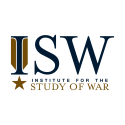 |
 |
China-Taiwan Weekly Update, May 19, 2023

Authors: Nils Peterson and Roy Eakin of the Institute for the Study of War
Editors: Dan Blumenthal and Frederick W. Kagan of the American Enterprise Institute
Data Cutoff: May 17 at Noon ET
The China–Taiwan Weekly Update focuses on Chinese Communist Party paths to controlling Taiwan and relevant cross–Taiwan Strait developments.
Key Takeaways
- Complementary CCP industrial and anti-espionage policies may facilitate the long-term expansion of China’s domestic industrial base and supply chain security.
- Kuomintang (KMT) presidential nominee Hou Yu-ih emphasizes the preservation of peace over clear cross-strait policy positions, possibly to create a pragmatic image in the eyes of Taiwanese voters.
China Developments
This section covers relevant developments pertaining to China and the governing Chinese Communist Party (CCP).
Complementary CCP industrial and anti-espionage policies may facilitate the long-term expansion of China’s domestic industrial base and supply chain security. CCP industrial policy entails using foreign investment to facilitate knowledge and technology transfers that in turn strengthen domestic workforce and infrastructure. This development supports the creation of an increasingly autarkic domestic economic cycle still augmented by the international market.[1] The CCP then selects domestic companies to continue receiving state subsidies. These subsidies in combination with the enforcement of the anti-espionage law allow the CCP to push out foreign firms like Ford and GM by eating away at their market share.[2] The anti-espionage law includes a broad definition of foreign agent that the CCP uses to control what information businesses’ allow foreign entities to access.[3] High-ranking CCP officials previously called for foreign investment at the Boao Forum for Asia in March 2023 before the party subsequently raided business intelligence firms with foreign links in line with the new anti-espionage law.[4] The call for foreign investment buttresses the development of Chinese domestic industries while the implementation of the anti-espionage law undercuts the competitiveness of foreign firms.
Taiwan Developments
This section covers relevant developments pertaining to Taiwan, including its upcoming January 13, 2024 presidential and legislative elections.
Elections
The Taiwanese (Republic of China) political spectrum is largely divided between the Democratic Progressive Party (DPP) and the Kuomintang (KMT). The DPP broadly favors Taiwanese autonomy, Taiwanese identity, and skepticism towards China. The KMT favors closer economic and cultural relations with China along with a broader alignment with a Chinese identity. The DPP under President Tsai Ing-wen has controlled the presidency and legislature (Legislative Yuan) since 2016. This presidential election cycle also includes the Taiwan People’s Party candidate Ko Wen-je who frames his movement as an amorphous alternative to the DPP and KMT. It is normal for Taiwanese presidential elections to have third party candidates, but none have ever won. The 2024 Taiwan presidential and legislative elections will be held on January 13, 2024 and the new president will take office in May 2024. Presidential candidates can win elections with a plurality of votes in Taiwan.
Kuomintang (KMT) presidential nominee Hou Yu-ih emphasizes the preservation of peace over clear cross-strait policy positions, possibly to create a pragmatic image in the eyes of Taiwanese voters. Hou became the KMT presidential nominee on May and continued emphasizing domestic issues as well as the necessity of cross-strait peace.[5] Hou is framing himself as a moderate while the Chinese media and "deep blue" KMT political figures frame the upcoming election as a choice between war and peace.[6] Hou's broad focus on peace and domestic issues likely aims to frame his election as one that will create domestic stability in Taiwan. This approach may be preferable for the KMT since the party’s deep support for the 1992 Consensus and cross-strait engagement contributed to their recent presidential election defeats in 2016 and 2020.[7] The 1992 Consensus refers to a cross-strait policy formulation supported in different formulations by the CCP and KMT that acts as a precondition to cross-strait dialogue.[8] Hou's further attempted to frame himself as a pragmatist via statements calling for both cross-strait engagement with China and strong US-Taiwan relations.[9]
Chinese cognitive warfare operations target Taiwanese consumers, which may aim to demoralize Taiwanese citizens during the Taiwanese presidential election cycle. Cognitive warfare refers to efforts aimed at influencing the target’s thoughts and perceptions of the world. Taiwanese citizens who purchased a book called "If China Attacks" from Taiwan's Eslite bookstore chain reportedly received calls after a data leakage from unknown individuals claiming they wanted the readers to participate in an Eslite customer survey.[10] The callers went on to promote messages about the “inevitability” of cross-strait unification, the inability of Taiwanese soldiers to fight in a cross-strait war, the United States’ unwillingness to support Taiwan, and the Kuomintang's (KMT) superiority in Taiwanese politics.[11] This messaging reiterates Chinese propaganda to degrade the Taiwanese populace’s confidence in their own government’s capacity to govern.
[1] http://www.qstheory dot cn/dukan/hqwg/2023-05/15/c_1129614652.htm
http://www.qstheory dot cn/dukan/hqwg/2023-05/15/c_1129614668.htm
http://www.qstheory dot cn/dukan/hqwg/2023-05/15/c_1129614661.htm
[2] https://www.businessinsider.com/china-auto-sales-automakers-ford-gm-making-losing-market-share-2023-4
[3] https://www.understandingwar.org/backgrounder/china-taiwan-weekly-update-may-12-2023
[4] https://www.understandingwar.org/backgrounder/china-taiwan-weekly-update-may-12-2023
http://www.gov dot cn/guowuyuan/2023-03/26/content_5748362.htm
http://www.gov dot cn/xinwen/2023-03/26/content_5748337.htm
http://finance dot people.com.cn/n1/2023/0328/c1004-32653030.html
https://www.boaoforum dot org/images/1679884337276625.pdf
[5] https://www.voanews dot com/a/taiwan-s-opposition-party-picks-popular-mayor-as-presidential-candidate/7098728.html
https://news.ltn dot com.tw/news/politics/breakingnews/4269564
[6] https://www.globaltimes dot cn/page/202305/1290901.shtml
https://www.bbc dot com/news/business-65184851
[7] https://www.brookings dot edu/blog/order-from-chaos/2016/01/16/taiwans-election-results-explained/
https://www.reuters dot com/article/taiwan-politics-idINKBN1ZJ0TK
[8] https://udn dot com/news/story/123307/7087362?from=udn-catelistnews_ch2
https://news.ltn dot com.tw/news/politics/breakingnews/4277644
[9] https://udn dot com/news/story/123307/7086779?from=udn-catelistnews_ch2
https://news.ltn dot com.tw/news/politics/breakingnews/4283477
https://news dot ltn.com.tw/news/politics/breakingnews/4288582
[10] https://news.ltn dot com.tw/news/politics/breakingnews/4301074
[11] https://news.ltn dot com.tw/news/politics/breakingnews/4301074
